
FIRST responders are trained to the highest level to excel in high-pressure situations. Whether it’s the fire service, paramedics or emergency doctors, all invest time and training to mitigate the effects of so-called “human factors”. These skills include methods to deal with stress, work as a team and debrief following the emergency, and are designed to optimise performance and outcomes during emergencies.
Equestrian sport carries injury risks, and many of its governing bodies require doctors, vets and ground staff at most equine events. Doctors undergo specific training for such situations – whether it be a three-day event or an international football match, there is a standard that all medics must reach.
However, although racecourse veterinary surgeons undertake a basic course in casualty management on a five-yearly basis, vets working at other equestrian events need little more than a veterinary degree. Even those with years of experience treating eventing-type equine injuries lack specific incident management training.
But emergency incidents do occur and, if handled incorrectly, can lead to serious injuries or death to horse and rider, or to well-meaning “would-be rescuers” or bystanders.
A PLAN OF ACTION
HOWEVER, working with the British Animal Rescue and Trauma Association (BARTA) and using techniques developed by Dr Stephen Hearns, a leading air ambulance doctor from Scotland, training has been developed for veterinary students, veterinary practitioners and event vets.
The training includes:
This story is from the {{IssueName}} edition of {{MagazineName}}.
Start your 7-day Magzter GOLD free trial to access thousands of curated premium stories, and 9,000+ magazines and newspapers.
Already a subscriber ? Sign In
This story is from the {{IssueName}} edition of {{MagazineName}}.
Start your 7-day Magzter GOLD free trial to access thousands of curated premium stories, and 9,000+ magazines and newspapers.
Already a subscriber? Sign In

'Sorry, but I wasn't feeling it'
Fresh from the opening meet, Tessa Waugh hasn't quite yet been bitten by the hunting bug. Without the crisp autumnal air and cheek-pinching cold she hoped for, it's a sluggish start
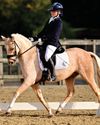
New pair pull off a win
A former European Championships pony is on form with his new rider, while elsewhere former showjumpers and eventers take ribbons
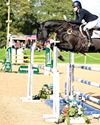
Lording it over the rest
Horses who have returned from injury, a second generation homebred and a long format specialist score on the final weekend of the British season
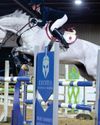
Smith hits flying form
A \"her way or no way\" mare helps Zoe Smith to an impressive ribbon haul and a rider beats his own boss to the top spot
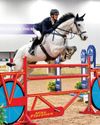
Jankorado hits the jackpot
Paul Sims is triumphant despite his interrupted jump-off preparation and a borrowed horse comes up trumps
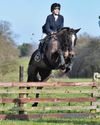
Peanut
From \"dangerous, scary\" to hedge-hopping brilliance, hunting has been the making of this unstable but very lovable equine character
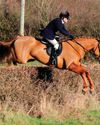
She's a corker
Communication, says long-standing and highly respected Belvoir master Lady Sarah McCorquodale, is the key to all, as Catherine Austen discovers
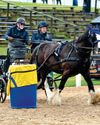
Access all areas Cavalier Centre
The Cavalier Centre is a fully accessible, state-of-the-art equestrian centre designed to improve lives through horse-based activities. Ellie May Forrester pays a visit
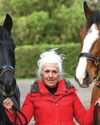
'Use it or lose it'
Not everyone wants to reach for the pipe and slippers at a certain age. Becky Murray speaks to some veteran horse-and-rider combos for their secrets of human and equine longevity
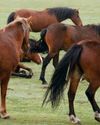
A new way forward
Worm control in horses is vital, but established methods will not remain effective for much longer. Tim Mair FRCVS explains why and how we need to change